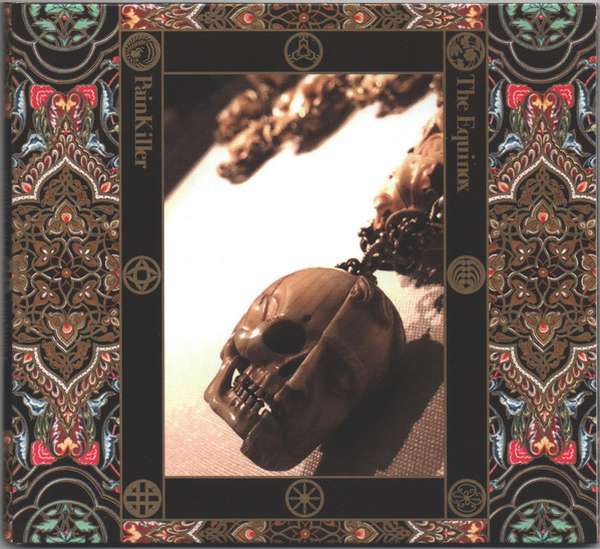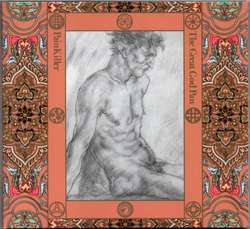Painkiller sees three absolute masters of extreme music join forces. John Zorn of Naked City and a billion other projects, Mick Harris who transcended from Napalm Death drummer to illbient guru with Scorn, and producer extraordinaire Bill Laswell. Their first two records, Guts of a Virgin and Buried Secrets are strange meditations traversing between free-jazz, grindcore and dub. Still hungry for experimentation, they unleashed their 1994 masterpiece, Execution Ground — a record where the earlier chaos gave way to meditative depth and dub-laden ritual. From there on, Painkiller would occasionally return with live releases, the band itself coming out of periods of inactivity but without a new studio release.
Until 2024, when Samsara arrived out of nowhere, and sees the trio return to form. Channeling their abrasive early days, minus the overtly grindcore outbreaks, the record is a gripping journey through a free-jazz, dub-inclined mayhem. However, there are some signs of rust here. Samsara does not feature the same meditative quality associated with Painkiller's latter days. It also does not drift too far away from its defined axis. Painkiller has always moved quickly when inspiration strikes—so it’s no surprise that just a few months after Samsara, we get The Equinox.
Influenced by Aleister Crowley's writings, it is easy to detect the ritualistic element in The Equinox. Harris applies his repetitive breakdowns, forging a circular movement as "The Wizard Way" comes into view. The distorted, digital drumkit acts as a guide through the dystopian landscape, at times processionally moving through a steady pace, while at other times it erupts in triumphant chaos. The occult axis pulls steadily, and "Panormita" takes flight through simple chime sounds and fleeting electronic echoes to enact its mysterious work. It feels like navigating through the corridors of an occult detective novel, a Carnacki-like figure lost in Painkiller's mystical domain.
While Harris lays the foundation, bringing the endeavour closer not only to Scorn but also The Bug and Techno Animal, Laswell's presence is pivotal. Here, he adds a rigorous low-end to rival the contorted breakbeats. In standing firm, Laswell can retain the sense of mystique that radiates through the work, at the same time allowing Harris and Zorn to lose all control. It is how "Ave Adonai" can leverage a distorted club sense, with its jungle inspirations, and not lose its dark aesthetic. It is Laswell's pulse that becomes the connecting tissue to the otherworldly.
And there is, of course, Zorn, who bounces across all his different modes. In "The Wizard Way," he traverses into sparagmos, the saxophone torn to pieces, disfiguring the drum beats with its erratic performance. And yet, it never takes away from the track's ritualistic pacing. It gives way to a more nuanced and moody performance that verges on the melancholic with "Forks In The Road," projecting Zorn's usual sense of disorientation. Where he really shines is in "The Soul-Hunter," where the in-track transformation is stunning. From the fragmented, soulful origin, the playing achieves a faster-than-light speed and a marvellously cacophonous quality. It aches with a wordless desperation.
The Equinox completes Samsara's return. It’s a more balanced, fluid offering—one that fully plays to the trio’s strengths. It is great to see Zorn, Laswell, and Harris dive into full anarchy mode in the likes of "Blind Prophet," with Harris and Zorn striving for complete delirium while Laswell plants a demented anchor to keep the pulse alive. However, for all its qualities, The Equinox does not reach the heights as Execution Ground, especially its meditative depth, although it gets close. Still, The Equinox remains a feral, inspired ritual. Blast it loudly.

